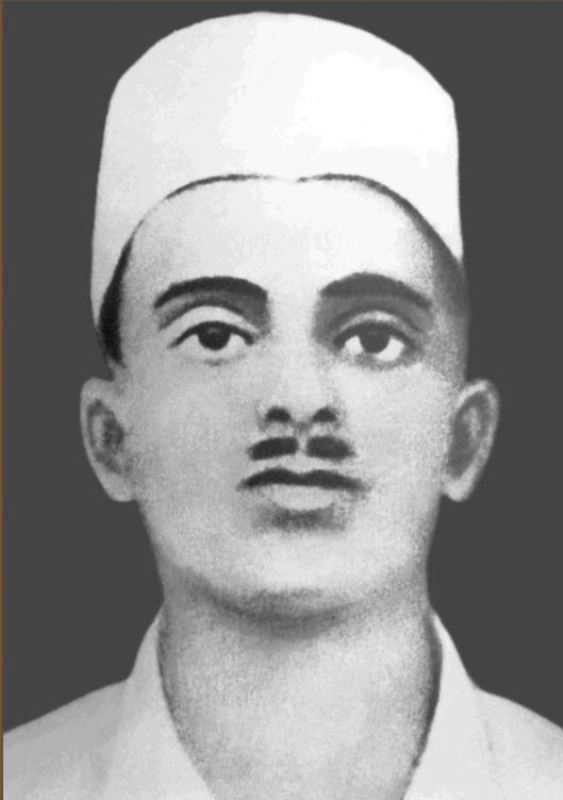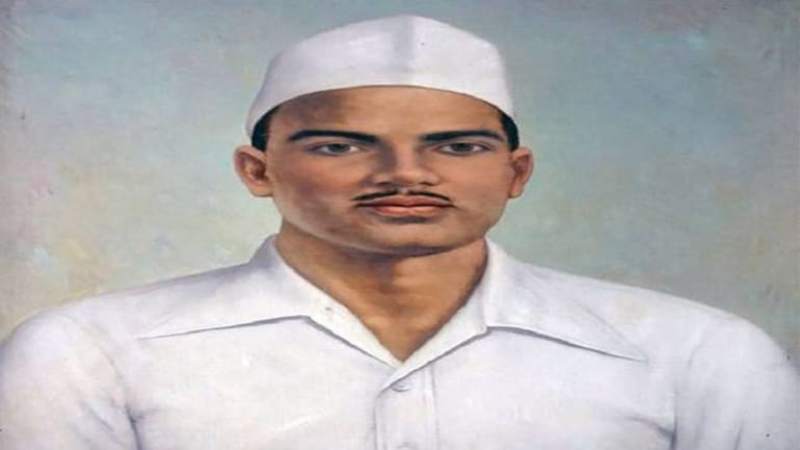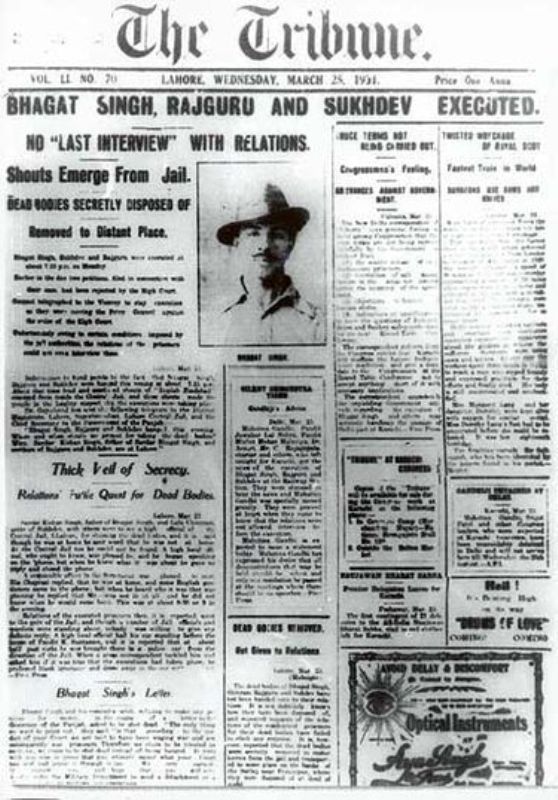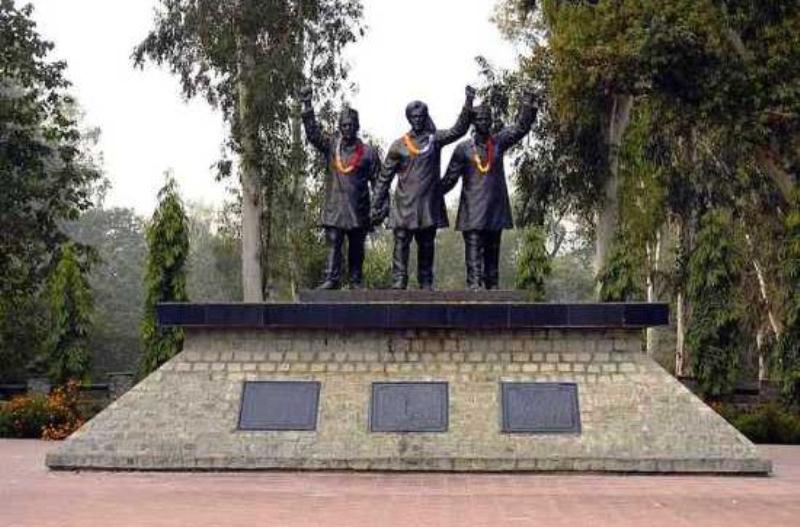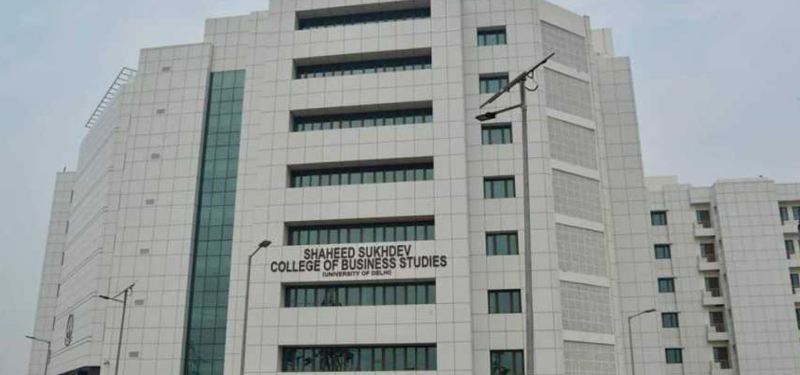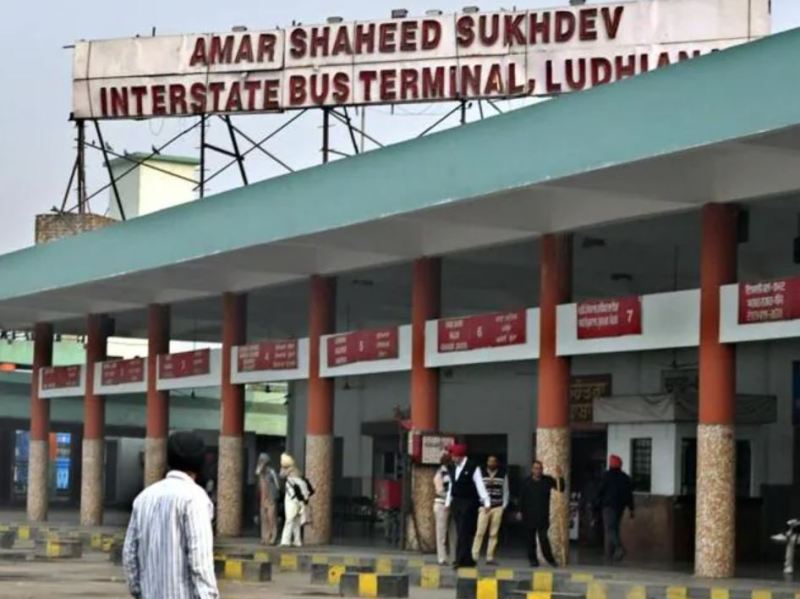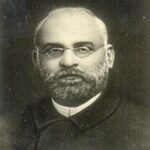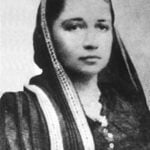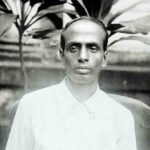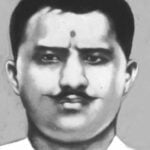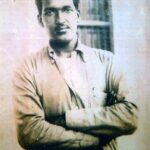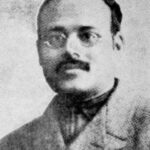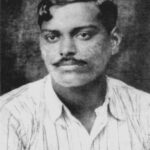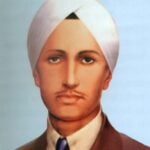Sukhdev Thapar Age, Death, Wife, Family, Biography & More
| Bio/Wiki | |
|---|---|
| Profession | Freedom Fighter |
| Famous for | Being involved in the assassination of Assistant Superintendent of Police, J. P. Saunders, on 17 December 1928 |
| Physical Stats & More | |
| Eye Colour | Black |
| Hair Colour | Black |
| Personal Life | |
| Date of Birth | 15 May 1907 (Wednesday) |
| Birthplace | Ludhiana, Punjab, British India (now in Punjab, India) |
| Date of Death | 23 March 1931 |
| Place of Death | Lahore, Punjab, British India (now in Punjab, Pakistan) |
| Age (at the time of death) | 23 Years |
| Death Cause | Execution by hanging [1]Byju's |
| Zodiac sign | Taurus |
| Nationality | British Indian |
| Hometown | Ludhiana, Punjab, British India (now in Punjab, India) |
| College/University | Lahore’s National College |
| Educational Qualification | He completed his graduation at Lahore’s National College [2]The Better India |
| Religion/Religious Views | Punjabi Hindu [3]Sacred Offerings Into the Flames of Freedom |
| Caste | Thapar Khatri [4]The Tribune India |
| Relationships & More | |
| Marital Status (at the time of death) | Unmarried |
| Family | |
| Wife/Spouse | N/A |
| Parents | Father- Ramlal Thapar Mother- Ralli Devi 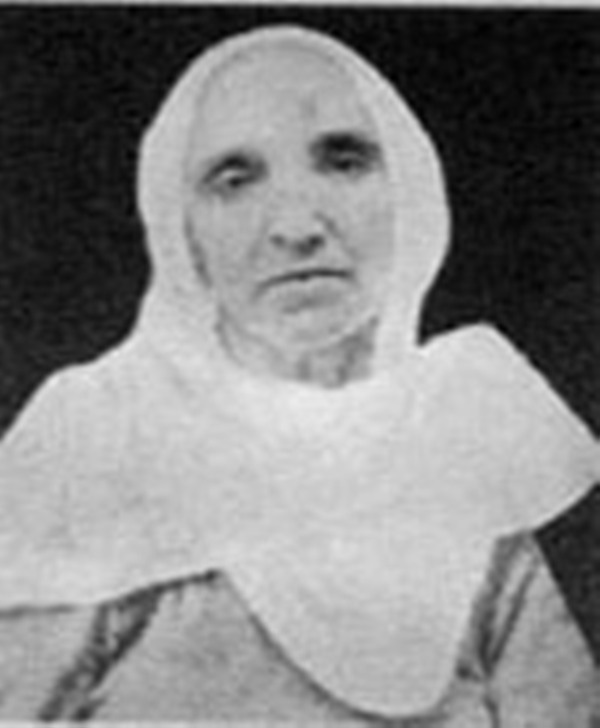 |
| Siblings | Brother- Mathuradass Thapar Nephew- Bharat Bhushan Thapar [5]The Tribune India |
Some Lesser Known Facts About Sukhdev Thapar
- Sukhdev Thapar was an Indian revolutionary freedom fighter who was associated with the Hindustan Socialist Republican Association as its senior member. He was involved in several anti-British activities along with his companions Bhagat Singh and Rajguru during India’s struggle for independence. At the age of 23, on 23 March 1931, he was executed by hanging by the British authorities at the Lahore Central Jail.
- Sukhdev belonged to a Punjabi Hindu community. [6]Sacred offerings into the flames of freedom When Sukhdev was studying at school, he refused to honour and salute the British officials who used to visit his school. He developed the patriotic spirit at an early age. His father died when he was very young. He was raised by his uncle Lala Achintram.
- Sukhdev started participating in anti-British activities after the arrest of his uncle and became an active member of the Hindustan Socialist Republican Association (HSRA). He was responsible for organising several revolutionary cells in Punjab, and other regions of North India. He used to make crucial decisions on the revolutionary activities of the HSRA and was appointed as the president of the Punjab unit.
- In 1929, Sukhdev Thapar initiated a prison hunger strike when he was arrested for his involvement in revolutionary activities. During the Lahore Conspiracy Case (1929–1930), he killed several British police officers. He was involved in the assassination of J. P. Saunders, who was the Assistant Superintendent of Police, by Bhagat Singh and Shivaram Rajguru. This assassination was done to revenge the killing of the senior Indian freedom fighter Lala Lajpat Rai.
- Sukhdev Thapar was registered as the accused number 1 in the FIR case filed by Hamilton Harding who was the Senior Superintendent of Police in the Lahore Conspiracy Case of 1929. The FIR complaint registered 25 accused in the same case, and Bhagat Singh was in the 12th position and Rajguru was in the 20th position. The case was registered in the court of R.S. Pandit who was a Special Magistrate in April 1929.
- In April 1929, in one of the incidents when the planning of the dropping of bombs in the Central Legislative Assembly was in progress at the HSRA, the central committee of HSRA refused to send Bhagat Singh to execute the bomb plan. This decision was taken as the party feared him to be arrested by the British officials as Bhagat Singh was already a main accused in the Saunders murder case. At this time, when the decision was taken, Sukhdev was absent from the meeting. Shiv Verma, one of the accused in the Lahore Conspiracy Case, who was awarded life imprisonment, stated in one of his memoirs that Sukhdev was against the decision as he wanted the best man to execute the plan. This decision compelled Sukhdev to call him a coward, and this issue flourished a misunderstanding between them. Shiv Verma wrote,
Sukhdev came after three days and opposed the decision tooth and nail. He was sure no one could convey HSRA’s goal as well as Bhagat. He went to Bhagat and called him a coward, one who was afraid to die. The more Bhagat refuted Sukhdev, the harsher Sukhdev became. Finally, Bhagat told Sukhdev that he was insulting him. Sukhdev retorted saying he was only doing his duty towards his friend. Hearing this, Bhagat told Sukhdev not to talk to him, and went away.”
- On 8 April 1929, Sukhdev, and his companions were arrested by the British authorities in the Central Assembly Hall bombings case in New Delhi. Later, they were convicted and sentenced to death in the same case. On his arrest, Sukhdev Thapar stated to the British police that he considered his arrest a stroke of good luck. He said,
It was a good thing that everything came to light. I consider my arrest a good luck for this reason.”
- In the judgement of the Lahore Conspiracy Case in 1930, Sukhdev was mentioned as the main accused. [7]Tribune India The judgement was read as,
In the court of The Lahore Conspiracy Case Tribunal, Lahore, constituted under Ordinance no III of 1930: The Crown – Complainant versus Sukhdev and others.”
- On 23 March 1931, Sukhdev Thapar, along with Bhagat Singh and Rajguru, was hanged till death at the Lahore Central Jail. Their execution news was announced on the front page of The Tribune soon after their death. The British authorities secretly cremated their bodies at the banks of the river Sutlej to avoid public outrage.
- Soon after the execution of the three, the news was widely reported by several media houses across the world. This execution took place at the annual convention day of the Indian National Congress in Karachi. The news reported by the New York Times was,
A reign of terror in the city of Cawnpore in the United Provinces and an attack on Mahatma Gandhi by a youth outside Karachi were among the answers of the Indian extremists today to the hanging of Bhagat Singh and two fellow-assassins.” [8]New York Times
- An article was written by B. R. Ambedkar in his newspaper Janata on this execution. He commented that the British government was continuing with the executions as they were already aware of the fact that these revolutionaries were widely supported by all the Indians. [9]Forward Press Ambedkar explained that the execution did not clarify the justice but it was the Labour Party that motivated the British government to take such extreme decisions otherwise they could be thrown out of the Conservative Party in England, and execution was merely to attract public opinion in England.
- The execution of Sukhdev and his companions dented the reputation of the British government in the eyes of Conservatives as just a few weeks before the execution, the Gandhi-Irwin pact was signed between Indian and the British. It was a tough decision for the British government or the Viceroy of India to sentence the British police officers who executed Sukhdev, Bhagat Singh, and Rajguru because it would give an opportunity to the Conservatives in England to criticize the already weak British empire in India.
- The government of India established a National Martyrs Memorial named Sukhdev, Bhagat Singh and Rajguru National Martyrs Memorial at Hussainiwala where the three were cremated.
- The government of India declared 23 March as the Martyrs’ Day (Shaheed Diwas) to honour the life sacrifice done by Sukhdev Thapar, Bhagat Singh, and Rajguru for the Independence of India. Every year, tributes and homage are paid at the memorial. [10]Jagran News
- In August 1987, a college named Shaheed Sukhdev College of Business Studies was named under the University of Delhi in the memory of Sukhdev Thapar. [11]SSCBS
- At the birthplace of Sukhdev Thapar, the main bus stand of Ludhiana city was named after him as Amar Shaheed Sukhdev Thapar Inter-State Bus Terminal. [12]Hindustan Times
- In 1926, Bhagat Singh established the Naujawan Bharat Seva that was joined by Sukhdev Thapar to participate in the national independence movements. Here, they became close companions.
- While studying at college, Sukhdev Thapar read about various revolutions in the world, and he was inspired by the Russian Revolution.
- One of the rebels, Shiv Verma, who was sentenced to life imprisonment in the Lahore Conspiracy Case, mentioned the character of Sukhdev Thapar in one of his memories ‘Sansmrityiaan’ which is preserved with the National Archives at Delhi and stated that Sukhdev was the organiser of the Punjab Party. [13]Tribune India He wrote,
In reality, Bhagat was the political mentor of the Punjab party; Sukhdev was the organiser – one who built its edifice brick by brick…”
- Soon after the assassination of John P. Saunders, who was the Assistant Superintendent of Police, Sukhdev Thapar, Bhagat Singh, and Rajguru fled from Lahore by train to Lucknow. After a few days, they returned to Lahore again.
- When he was a prominent revolutionary freedom fighter, Sukhdev Thapar went to the National College in Lahore to educate and inspire the youth by delivering a speech about the glorious past of India and its prominent patriots. [14]Economic Times
- Sukhdev was the follower of Pandit Ram Prasad Bismil and Chandra Shekhar Azad.
- A few days before his hanging, Sukhdev Thapar wrote a letter to Mahatma Gandhi. He wrote,
The three prisoners of the Lahore conspiracy case who have been awarded capital punishment and who have incidentally gained greatest popularity in the country are not everything in the revolutionary party. In fact, the country will not gain as much by the change of their sentences as it would by their being hanged.”
- One of Sukhdev’s HSRA comrades, Shiv Verma, stated in his book that he wrote during his life imprisonment period in the Lahore Central Jail that Sukhdev was stubborn and whimsical in nature. He added that once, Sukhdev removed his OM tattoo on his arm with nitric acid so that he could test his endurance, and then he put his wounded arm on the burning candle to remove the remaining marks. Sukhdev was recognised in the organisation for his organisational and fellowship skills. He mentioned in his article that Sukhdev held himself responsible for pushing Bhagat Singh in the jaws of death. When Sukhdev forced the committee members to change their decision to send Bhagat for dropping the bomb in the assembly, Sukhdev went to Lahore in the same evening, and according to his sister-in-law, his eyes were heavily swollen the next morning as he wept all night on his decision. Sukhdev’s comrade stated that Sukhdev was a flower from inside and stone from outside. He further stated that he used to hide his feelings. [15]Tribune India
- A book titled ‘The Hanging of Bhagat Singh’ was published in 2005 by Waraich and Gurdev Sidhu stated the full judgment of Sukhdev, Bhagat, and Rajguru. It stated that Sukhdev was the main brain behind all the conspiracies, and he was the right arm of Bhagat Singh. In HSRA, Sukhdev was responsible for organising and recruiting new members and assigning their respective tasks according to their capabilities. [16]Tribune India
- Before his hanging, Sukhdev wrote another letter to Mahatma Gandhi from the Lahore Central Jail in which he clarified the aim of revolutionaries. He stated that establishing a socialist republic in the country is the main focus of revolutionaries and this goal could not be changed. He added that Mahatma Gandhi believed the revolutionaries were irrational and enjoyed killings and murders, but, the reality behind it was totally opposite. Sukhdev continued writing that the revolutionaries know their responsibilities, but they would remain strict to the destructive side only. [17]Tribune India
- The verses Sukhdev and other revolutionaries died singing:
Watan ki aabru ka pas dekhen kaun karta hai,
Suna hai aaj matkal mein hamara imtihaan hoga;
Shaheedon ki chitaon par judenge har baras mele,
Watan par mitne waalon ka yehi baaki nishan hoga;
Kabhi yeh bhi din ayega jab apna raaj dekhenge,
Jab apni hi zameen hogi aur apna aasmaan hoga.”
- A Punjabi book titled, Shaheed Sukhdev: Naugharan ton Faansi Tak was published by the Shaheed Sukhdev Yaadgar Committee to honour the sacrifices of Sukhdev Thapar during the Indian independence movement. His late brother Mathura Das Thapar also wrote a book titled Mera Bhai Sukhdev in the loving memory of his revolutionary brother. [18]Tribune India
References/Sources:

